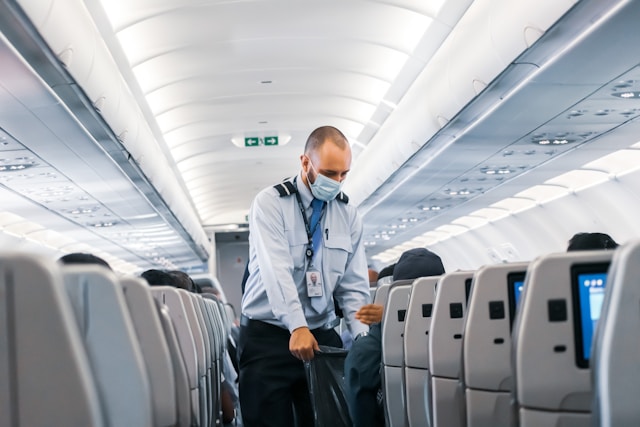Air travel is an essential part of modern life, connecting people from all walks of life to destinations around the world. However, for passengers with special needs, navigating the airport and boarding an airplane can present unique challenges. Accessibility and safety should be paramount, yet numerous reports highlight the risks these individuals face due to improper handling during the loading process.
The Vulnerabilities of Passengers with Special Needs
Passengers with special needs encompass a wide range of disabilities, including physical impairments, sensory limitations, and cognitive challenges. For individuals with mobility issues, the act of boarding an airplane can be particularly daunting. Many may require assistance to navigate the airport and safely board the aircraft. Inadequate training of airline staff and the absence of specialized equipment can further exacerbate these challenges, putting passengers at risk of injury.
For example, individuals with wheelchair mobility may face difficulties during the boarding process if airline staff are not adequately trained to handle their needs. Improper lifting techniques or failure to use appropriate equipment can lead to falls or other serious injuries, turning what should be a straightforward process into a hazardous situation.

The Role of Airline Staff
Importance of Training
Proper training for airline staff is essential to ensuring the safety of passengers with special needs. Employees should receive comprehensive instruction on how to assist individuals with various disabilities, including proper lifting techniques, the use of specialized equipment, and effective communication strategies. Staff trained in disability awareness are better equipped to identify and respond to the unique needs of each passenger.
Training programs should also include scenarios that help staff practice handling various situations, ensuring they are prepared for the diverse needs of travelers. By prioritizing education and training, airlines can minimize the risk of accidents and injuries during the boarding process.
Communication with Passengers
Clear communication between airline staff and passengers is vital. Passengers with special needs often have specific requirements and preferences that must be understood and respected. Airline staff should proactively ask passengers about their needs and preferences, providing reassurance that they will receive the necessary support throughout their journey.
Inadequate communication can lead to misunderstandings and accidents. For instance, a passenger may require assistance with a specific boarding procedure, but if this need is not clearly communicated, the airline staff may not provide the required support, resulting in an unsafe situation.
Legal and Regulatory Framework
Rights of Passengers with Disabilities
Passengers with special needs are entitled to certain legal protections under the Americans with Disabilities Act (ADA) and other relevant regulations. These laws require airlines to provide reasonable accommodations to individuals with disabilities, ensuring their safety and accessibility throughout the travel process.
The ADA mandates that airlines must provide assistance to passengers who require it, whether through physical support, specialized equipment, or other necessary accommodations. Airlines that fail to comply with these regulations can face legal repercussions, making it essential for them to prioritize the safety and well-being of all passengers, especially those with special needs.
Reporting and Accountability
Reporting incidents of improper handling is crucial for holding airlines accountable. Passengers or their caregivers should be encouraged to report any injuries or unsafe conditions they encounter during air travel. These reports can lead to investigations and prompt airlines to implement necessary changes to their policies and practices. To report an incident, you can speak to a Complaints Resolution Official (CRO). A CRO is the airline’s expert on disability accommodation issues.
By fostering a culture of accountability, airlines can improve their handling of passengers with special needs and ensure that safety is always a top priority. It is essential for regulatory bodies to monitor compliance and address any deficiencies that may put vulnerable passengers at risk.


